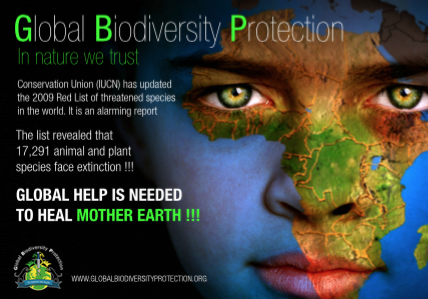COP10 signs off on protocol
Pact reached on biodiversity, genetic assets
NAGOYA — Delegates to the COP10 biodiversity conference concluded agreements early Saturday on access to genetic resources, preserving biodiversity over the next decade, and strategies to mobilize financial resources to meet these goals.
 |
| Nailed it: Environment Minister Ryu Matsumoto raises the hammer to end the COP10 conference in Nagoya on Saturday. KYODO PHOTO |
The Nagoya Protocol on Access to Genetic Resources and the Fair and Equitable Sharing of Benefits (ABS) was COP10's keystone agreement, to which all other issues were linked.
Under the new protocol, 193 parties to the Convention on Biological Diversity, which sponsored COP10, will be legally obliged to follow rules designed to prevent biopiracy and provide benefits, including financial ones, to other parties when their genetic resources are accessed.
Applause and cheers filled the Plenary Session Hall early Saturday morning as attendees adopted the ABS protocol and the two key agreements that proved the thorniest of the negotiations.
"I'm undoubtedly happy. We came to make Nagoya a success," said Kiruben Naicker, a member of the delegation from South Africa, as he and his colleagues left the Nagoya Convention Center around 2 a.m. Saturday.
As host of COP10, the successful outcome following hours of marathon negotiations that stretched into the early hours boosted Japan's confidence, and recently appointed Environment Minister Ryu Matsumoto was visibly relieved when he banged the gavel for the final time.
"It was a long 18 years from Rio de Janeiro, when the Convention on Biological Diversity came into being in 1992. I kept reminding myself that people came to Nagoya with strong expectations," he said.
Details of the protocol need to be thrashed out before COP11 takes place in India in 2012. But the fact that the international community was able to adopt the Nagoya Protocol is significant, said Ryo Kohsaka, associate professor of environmental policy at Nagoya City University.
Prime Minister Naoto Kan's announcement Wednesday of $2 billion in aid for biodiversity-related projects in developing countries, providing the protocol and targets were adopted, strongly influenced the negotiations, he said.
"The parties were under pressure, and if they lost this opportunity to adopt a protocol, it may not have happened for another decade. So Japan's investment became a driving force to the negotiations," said Kohsaka, a former official at the Convention on Biological Diversity's secretariat and an adviser of the COP10 Promotion Committee in Nagoya.
Kohsaka added the protocol will send a positive message to climate change negotiations in Cancun, Mexico, in December.
Throughout COP10, officials of the Convention on Biological Diversity and nongovernmental organizations emphasized the outcome in Nagoya would influence those talks, as biodiversity and climate change are intricately intertwined.
In addition to the protocol, COP10 agreed on other biodiversity-related issues, including a strategic plan to reduce biodiversity loss by 2020, measures to fight invasive alien species, especially those introduced as pets, aquarium and terrarium species, and as live bait and live food, and to prevent deforestation.
At the urging of Japan, the convention also adopted a decision to declare 2011-2020 as the U.N. Decade of Biodiversity.









There are no comments published yet.